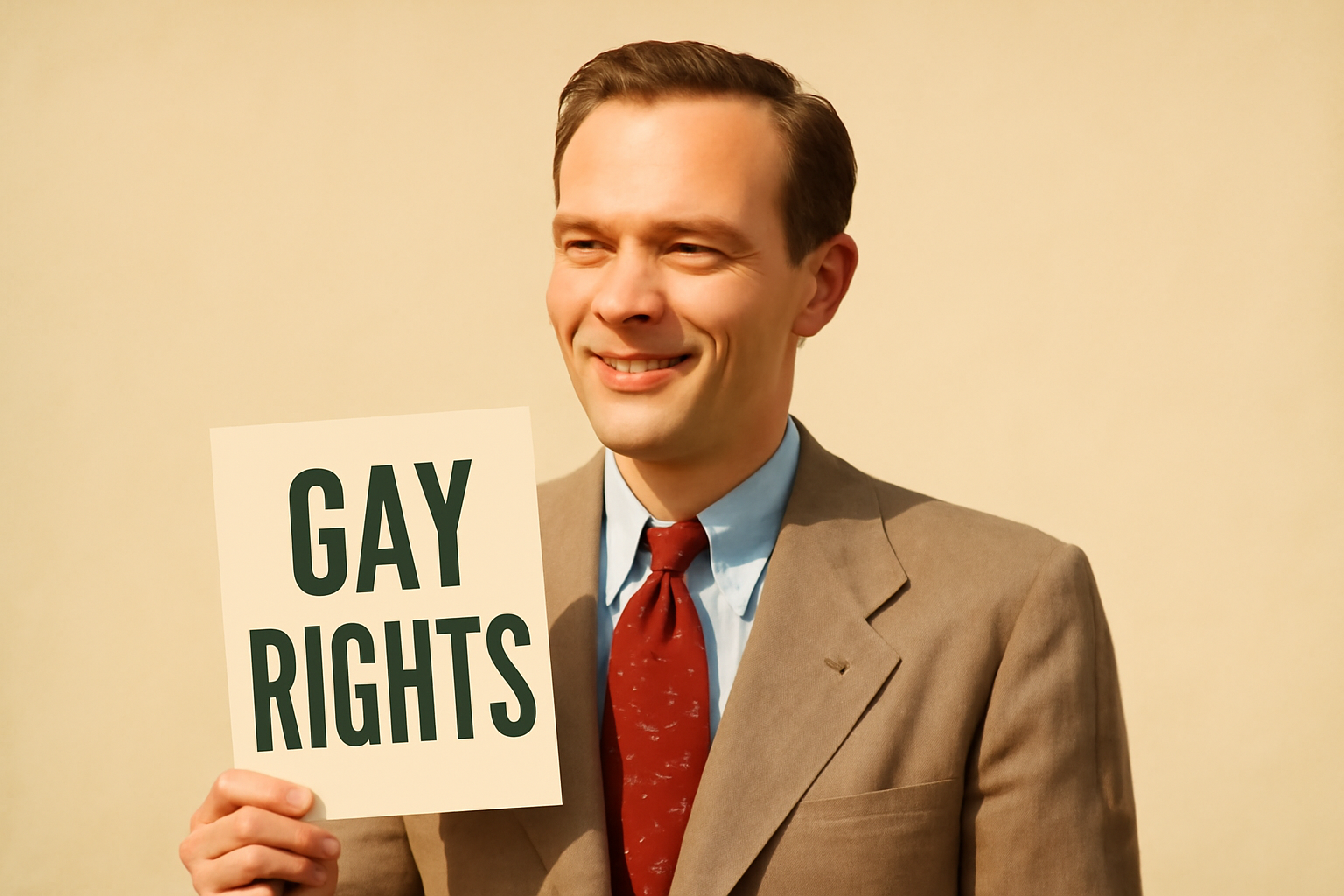
In the early 20th century, life for LGBTQ+ individuals in the United States was fraught with legal and social challenges. Laws against cross-dressing, sodomy, and discrimination based on sexual orientation or gender identity were pervasive. Despite these restrictions, an underground culture of balls, drag shows, and salons flourished among queer communities.
The Harlem Renaissance and blues era saw queer individuals expressing themselves within their own circles, even if broader political organization for equality was not yet on the horizon. It wasn’t until the 1950s that the foundations for the fight for equality began to take shape through community centers and activist groups.
The Early Inspiration from Berlin
Across the Atlantic, Berlin was a hub of LGBTQ+ activism, thanks to Magnus Hirschfeld, who established the world’s first LGBTQ+ rights organization, the Scientific-Humanitarian Committee, in 1897. Hirschfeld’s pioneering work influenced many, including a man who would bring the spirit of LGBTQ+ advocacy to the United States.
Henry Gerber, born in Bavaria in 1892, emigrated to Chicago in 1913. His exposure to Hirschfeld’s movement during his service in Germany with the U.S. Army inspired him to initiate a similar effort in America. Returning to Chicago in the early 1920s, Gerber set out to establish the first gay rights organization in the United States.
The Birth of the Society for Human Rights
On December 10, 1924, Gerber officially filed for the incorporation of the Society for Human Rights in Illinois, receiving approval by December 24. This milestone marked the inception of the first LGBTQ+ rights organization in the U.S. However, the legal landscape of the time necessitated caution in the group’s mission, which broadly aimed to protect individuals facing discrimination due to "mental and physical abnormalities" and to combat public prejudice through scientific education.
Gerber also launched "Friendship and Freedom", the first known gay publication in the United States, though its distribution was severely limited by the anti-obscenity Comstock Act. Despite its short run, the publication had a lasting impact, reaching figures like Harry Hay, who later co-founded the Mattachine Society, a key player in the mid-20th-century gay rights movement.
The Challenges and Legacy of the Society
Despite their groundbreaking work, the Society for Human Rights faced swift opposition. Internal betrayal led to police raids, and Gerber, along with other members, was arrested. The Society dissolved soon after, with Gerber losing his job and life savings in the process. Nevertheless, his courage and the Society’s brief existence proved that advocacy for gay rights was possible even in a repressive era.
Henry Gerber's activism laid foundational stones for future movements. His efforts inspired later generations, and his impact endures through organizations like the Gerber/Hart Library in Chicago, which continues to promote LGBTQ+ history and community support.
Remembering and Celebrating Gerber’s Legacy
As the centennial of the Society for Human Rights is commemorated, it serves as a powerful reminder of the importance of community, advocacy, and historical awareness. Understanding our history is crucial for empowering present and future generations to stand firm in their rights and continue the work of pioneers like Henry Gerber.
With LGBTQ+ history under threat in modern educational narratives, organizations dedicated to preserving and sharing this heritage play a vital role in ensuring that the stories of early activists inspire ongoing efforts for equality. As communities celebrate this centennial, they honor the bravery of those who dared to advocate for change long before it was safe or popular.
Related Posts
Triumphant Trans Woman Wins Legal Battle and Inspires Others to Stand Up for Their Rights
Breaking New Ground: A Triumph for Trans Rights A transgender woman’s decade-long legal fight against workplace discrimination has culminated in a significant victory. After enduring years of humiliation and disrespect from her employer, Diana Portillo was awarded nearly $1 million in a landmark settlement. Her story is not just about personal vindication but also about her commitment to paving [...]
Pride Month in Latin America: Protests and Demands for Equality
**Celebrating Pride and advocating LGBTQ+ rights in Latin America** Pride Month in Latin America was a lively mix where celebration met activism. Communities united, not just throwing a party but making a stand—demanding equality and pushing governments toward better protection and rights recognition. Throughout Latin America, pride events erupted in marches and cultural displays, each with a c [...]
Transgender Erasure Actions Implemented by National Park Service
```html Trump administration's impact on national park service and transgender recognition The Trump administration made notable moves in undermining transgender representation, which included directing agencies like National Park Service not include "T" and "Q" when they refered “LGBTQ” in any official communication. This move seems part a broader plan by this administration aimed at reducin [...]